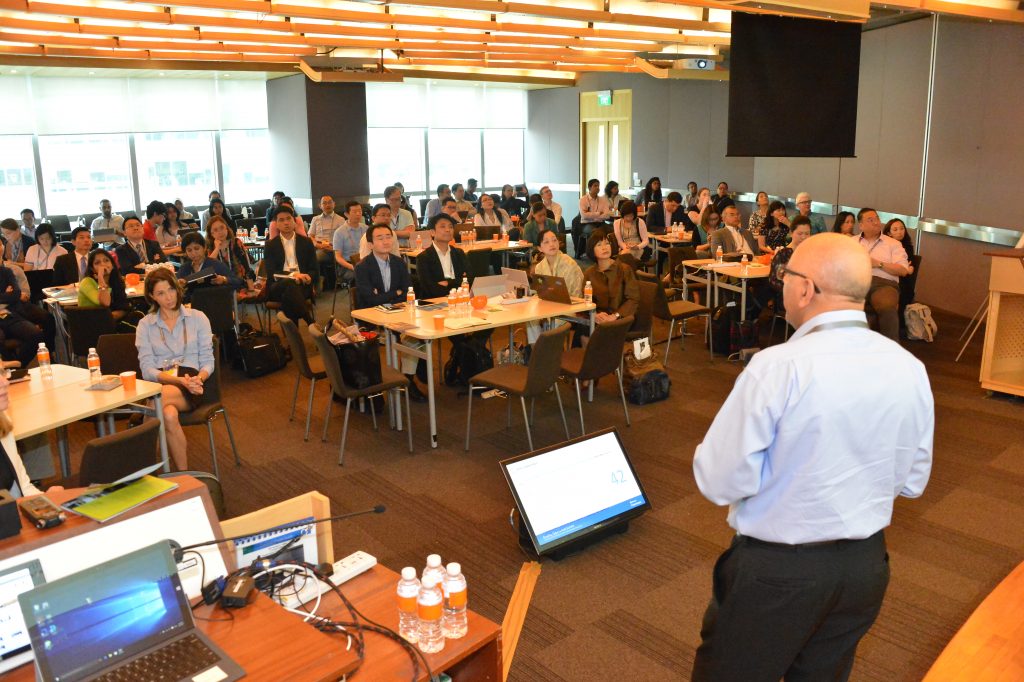
Top policy makers, educators, and nonprofit partners gather in Singapore for two-day summit to enhance capabilities in providing computer science education to all youth
SINGAPORE, 28 June 2016 — Partnerships with nonprofit organizations are key in Microsoft’s mission to bridge the youth opportunity divide and increase access to computer science education across the Asia Pacific region. This was the underlying theme for Microsoft Philanthropies’ inaugural two-day summit in Asia, Enabling Opportunities, where top policy-makers, educators, researchers, thought leaders and nonprofit organizations (NPOs) from across the region gathered in Singapore to discuss the challenges, opportunities and ideas required around building an ecosystem to bring the benefits of technology to their local communities.
During the summit, one of the key issues discussed is the technology skills gap facing young people which results in their inability to obtain high-value jobs. This gap also means that they miss out on opportunities to become innovators and drivers of growth within their communities.
Mary Snapp, Corporate Vice President, Microsoft Philanthropies, said, “Our mission is to empower every person on the planet to achieve more. Delivering on this mission starts with great technology, but great technology alone is not enough. Microsoft Philanthropies is working to increase access for all youth, especially those from underserved communities, to learn computer science and develop the skills which are critical for their future.”
For example, through the Microsoft YouthSpark program, NPOs in the Asia Pacific region are supported with the resources and the tools they need to bring computational thinking and problem-solving skills to local communities, which are important capabilities to help them succeed in today’s tech-fueled economy.
Increasing youth’s access to computer science education is a key issue Microsoft is addressing to help stem the rising rate of youth unemployment across the world. In fact, the Economist Intelligence Unit’s (EIU) Education to 2030 study shows that while 15 out of the 25 economies covered by the study are expected to raise public expenditure in education, schools today are not focused on teaching analytical and computer science skills. Nevertheless, countries are taking note with EIU forecasting that science, technology, engineering and math (STEM) graduates from low-income economies will see the fastest growth in total number of STEM graduates. For instance, by 2030, Indonesia is expected to produce STEM graduates which represent 0.6 percent of the labor force, up from 0.2 percent in 2015. Conversely, Singapore’s STEM graduates accounted for 0.3 percent of the labor force in 2015 and is expected to grow marginally to 0.4 percent by 2030.
Compounding the issue, girls remain significantly underrepresented in STEM majors which impacts their career prospects and pay scales once they enter the work force. Not only is closing the gender gap on the national agenda for many governments, the technology industry, including Microsoft have been driving programs such as Microsoft YouthSpark, TechFemme and DigiGirlz that empower women to step up in STEM fields as well as train them to pursue their entrepreneurial passion.
Closing the computer science skills gap and reaching young people in Asia Pacific is a multi-faceted challenge that cannot be solved by one organization alone. As such, Microsoft’s partnerships with governments, businesses and NPOs mean that more youth, especially in underserved communities, girls and diverse populations in the region will have access to computer science education and build skills critical for future success.
The summit builds on the momentum of the announcement last September, when Microsoft CEO Satya Nadella announced an expansion of the YouthSpark program to focus on youth access to computer science education with a US$75 million commitment in community investments over the next three years. So far, Microsoft has provided grants to over 100 NPOs in 55 markets, including 29 NPOs in the Asia Pacific region and has trained more than 566,000 young people in computer science.
For more information about YouthSpark and access to tools and resources, including free online tutorials and training, please visit http://YouthSparkHub.com and http://Microsoft.com/imagine.




